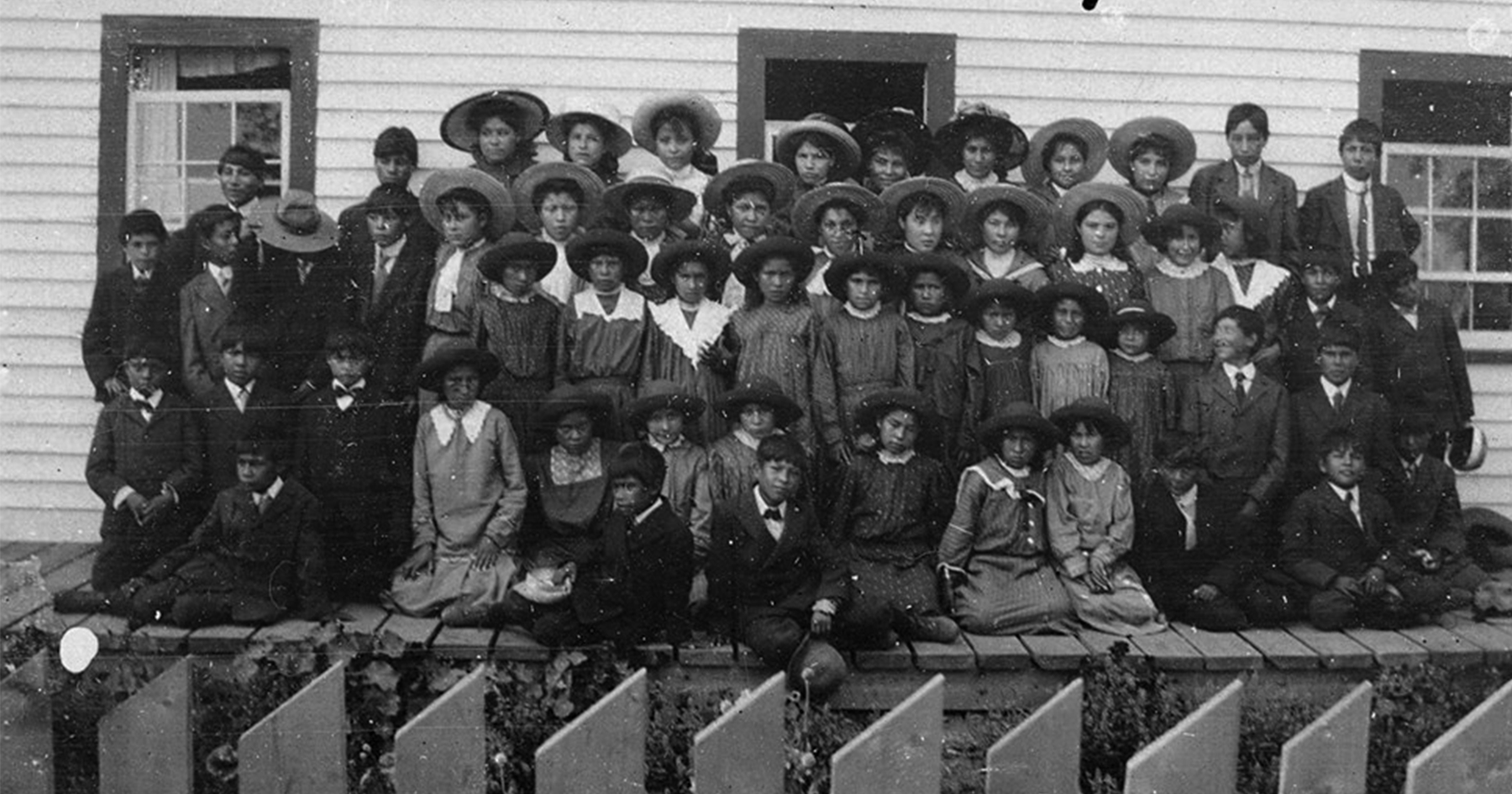First Steps Toward Reconciliation, Part 1 of 3
“The preservation of knowledge is fundamentally not about the past but the future.”
Dr. Richard Ovendon, OBE, Bodley’s Librarian, Oxford in “Burning the Books: A History of Knowledge Under Attack.”
In the summer of 2023, I was contacted by Dr. Evan Habkirk, Historian and Indigenous Studies Professor at UBCO in Kelowna, inquiring whether some of his students might do research in the Kootenay Archives on the subject of Indian Residential Schools. I informed him that the documents which we had scanned and submitted to the Truth and Reconciliation Commission would be available to the students in digital format, and that he would be welcome to share them with his students. By September 2023, Dr. Alanaise Ferguson, a Psychologist and Indigenous Studies Professor, became involved with her class, for a combined total of 50 students. Half of the 1,986 documents were shared among the students so they could study them and put together large posters documenting their findings about the (dis)connections that have existed between the Anglican church and Canadian Indigenous Residential Schools. These were displayed at a Knowledge Sharing Event on December 5 at the Cathedral, which was attended by an enthusiastic and attentive crowd.
What follows is an introduction to the event providing context for the student research, and a common point of reference for the audience. If you are interested in obtaining a list of my resources for this article, please email me at [email protected]
In 1892, the Federal government and churches entered into partnership in the operation of Indian Residential Schools. The Anglican Church of Canada, along with the Roman Catholic, United, and Presbyterian churches ran the nearly 140 government-funded schools which were attended by over 150,000 First Nation, Métis and Inuit children.
Between 1820 and 1969, the Anglican Church of Canada administered more than 30 government-funded residential schools for Indigenous children. Students in the Anglican schools were supported materially and financially by the Women’s Auxiliary (WA) of the Missionary Society of the Church of England in Canada (MSCC), and by non-Indigenous parishes.
Although the Diocese of Kootenay did not operate any residential schools, churches in this diocese supported over 17 Indian Residential Schools across Canada through the Dorcas and Supply Department of the National Church Women’s Auxiliary, by providing clothing, food, and funds.
By the early 1960s, the churches and government concluded that the residential school system had failed. In this post-war era, Indigenous issues were high on the public agenda as aboriginal groups found a forum to raise their concerns. Successive amendments to the Indian and Constitution Acts and landmark court decisions removed discriminatory practices, restored rights and provided a new empowerment for Indigenous groups.




